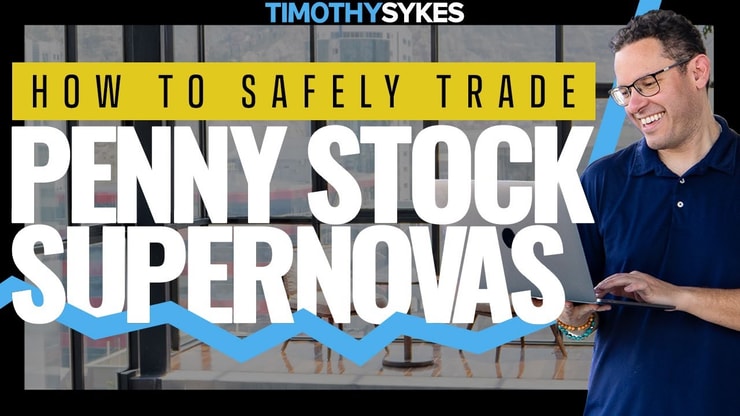With over $7.4 million in career trading profits and over 30 millionaire students under my belt…I’ve seen it all.
Time and again, I’ve watched traders, both newbies and pros, get in their way and self-destruct.
Those gut-wrenching moments when a decision backfires or FOMO clouds judgment…
Instead of thinking clearly…your mind runs wild, making one terrible decision after another.
It sucks…and if you can’t get it together…your trading career can end before it even starts.
One way to win the mental game of trading is through awareness.
That’s why I will take some time and walk you through the nine psychological traps most traders overlook.
And, more importantly, how to overcome them.
Table of Contents
#1 Overconfidence Bias

If you’re a short seller, this will hit home hard. Why? Because short sellers think they’re geniuses. That their logic is always right, and while it’s true, most of the time they are correct, it’s not enough in the trading game.
You also need to get your timing right to make money. And that’s where they typically fail miserably.
However, without them, we wouldn’t have as many awesome short squeezes as we’ve seen lately.
You can’t afford to get cocky in this market. You will be humbled.
I trade scared for a reason, even though my win rate is exceptionally high.
Solution: Constantly evaluate your trading and performance. I like to review and journal all my trades regularly to identify successes and mistakes. Always be in a learning mode.
#2 Confirmation Bias
This one again will help my short seller pals. Stop focusing only on information that confirms your bias and ignoring contradictory evidence.
The same applies to long traders who love a stock or sector.
If you believe a stock will increase, you might only seek positive news about the company.
Remember, there’s always on the other side of your trade.
Learn to put your ego to the side. And let price dictate your next move.
For example, whenever I get into a trade, I have a couple of reasons why I like it.
But I also know that I can be wrong. That’s why I’m always trying to cut losses quickly.
More Breaking News
- Goodyear Faces Challenges with Earnings Miss Amid Industry Turbulence
- Entegris Faces CFO Transition Amid Price Target Boosts from Analysts
- AppLovin’s Stock Jumps Amid Optimistic Analyst Upgrades
- Strategic Moves Propel CCH Holdings: Stock Soars
Solution: Seek diverse information sources. If you’re a short seller, figure out why traders are taking a long position and vice versa if you’re a long.
#3 Loss Aversion

The pain of losing money often feels twice as strong as the pleasure of gaining, leading traders to hold onto losing positions for too long, hoping they will turn around.
Make a plan and stick to it.
I always aim to cut losses quickly. Heck, sometimes I don’t even wait for the stock to turn red on me, I will get out if it’s not moving fast enough.
It’s a lot easier to recover from a small loss than a large loss.
I know, because I’ve had to come back from big losses, which totally sucks.
Solution: Respect your trading plan. If you’re someone who needs to use stop losses, then use them. This will allow you to predetermine your risk and exit a position once it drops to a certain level.
#4 Fear of Missing Out (FOMO)
Don’t be this person.
You know, the one who is jumping into a trade because everyone else is doing it or because it seems like a hot trend.
It’s hard watching stocks flying and you not in them. However, are you trading to make money or for the thrill of the action?
If you’re trading to make money, then price matters.
I’m only getting to high-flying stocks if the price is right. After all, I want to give myself the best possible chance to win. That’s why I’m constantly looking for panic dip buys.
SOLID month of trading for me, +$13.4k finishing the month strong on $NAOV even though I missed $ACER today during my live https://t.co/occ8wKmlgm webinar today, but good thing @tbohen helps mentor in the challenge too & he NAILED that buy in the low $1s up to the high $1s!!… pic.twitter.com/SbuY9QFP0f
— Timothy Sykes (@timothysykes) August 31, 2023
Solution: Stick to your trading plan. Only enter trades based on the criteria you know work, not on impulsive emotions or hype.
#5 Anchoring Bias
This happens when you rely too heavily on the first piece of information encountered (the “anchor”) when making decisions.
For example, the ticker symbol NAOV was an absolute beauty last week.
And one I looked to dip buy at every chance.
However, I did not buy it when it had its largest dip of the day…
Why?
Because the company announced a $5 million private placement. In essence, diluting the stock. After that new piece of information was made available, I was no longer interested in dip buys.
Often a trader will anchor to a specific price without taking new information into account.
Solution: Constantly evaluate what’s happening. Is there new information in the stock? Is volume drying up or picking up? Are certain price levels holding or breaking? Be diligent.
#6 Revenge Trading

After experiencing a loss, some traders will try to recover quickly by making high-risk trades. This is often driven by emotion rather than rational strategy.
Again, we trade to make money, not to stroke our ego.
Accept that you will be wrong, and it’s part of the game.
Losses will happen. And your best chance of recovering from them is by taking good setups.
If you let your emotions get in the way, you will likely make more poor decisions, taking you down a deeper hole.
Solution: Take breaks after losses. Allow yourself time to emotionally and rationally process a loss without immediately jumping back in. If I have a poor trading day, I may take the next day or two off.
#7 Herd Mentality

This occurs when traders mimic the actions of each other. This is how a lot of short sellers trade. And that’s why they’re getting crushed lately.
I teach my students to think independently. That includes NOT following me into trades.
YESSSSS how you like that $ACER shorts?!?! I tried warning you, but you're so toxic/narrow-minded and stubborn, at least you enjoy pain so thank you for your mental issues and for helping spike stocks SO MUCH FURTHER than they deserve. Please never read https://t.co/VyN9qL8tqn
— Timothy Sykes (@timothysykes) August 31, 2023
Solution: Everyone has different risk tolerances, account sizes, and market access. That’s why you need to figure out what works best for YOU.
#8 Disposition Effect

This occurs when you sell out of winning trades early and hold onto losers.
Now, I get rid of my winners too early, but I also get rid of my losers fast. The reason why I’m consistently profitable is because I win more than I lose…and my winners are bigger than my losers.
Accept that you can be right and wrong. Trading is a numbers game. Let the numbers work in your favor.
If your losses are bigger than your winners, that’s a potential problem.
Solution: Set profit-taking levels in advance if you get out of winning trades too quickly. Also, have a clear exit strategy for both positive and negative outcomes.
#9 Gambler’s Fallacy
This happens when you believe that past events can influence future outcomes in independent events.
Short sellers struggle with this.
For example, you see a stock constantly uptick all day, so you assume it will “have to drop soon.”
That’s how short squeezes happen. And why the market has been so awesome to trade lately.
What an AMAZINGGGGGGGGG day!!!! Tell me how much you made or how much you learned, plays like $ICCT $NAOV $TIO $GTEC $VFS $VFSWW $AXLA $VCIG $RENB are just so fucken awesome, it's mind-blowing that so many people are missing these beauties. Study https://t.co/46W8tDB2QL ASAP!
— Timothy Sykes (@timothysykes) August 30, 2023
Solution: Follow the catalysts and price action. Treat every trade as an independent event and avoid drawing conclusions based solely on past events.
Are You Ready To Take The Next Step In Your Trading Journey

Some traders make it a lot harder than it should be.
If you can master the mental game of trading, it will take a lot off your shoulders.
To help you get better in all aspects of your trading, my team and I have put together a series of live training classes.
In these live training sessions, we talk about stocks, strategy, and mindset.
We bring them to you at zero cost.
All you have to do is register.



Leave a reply